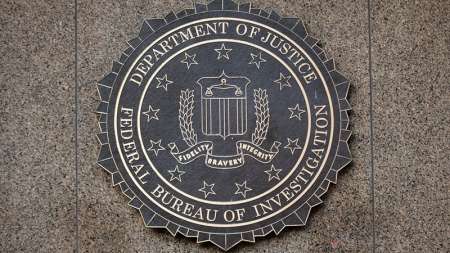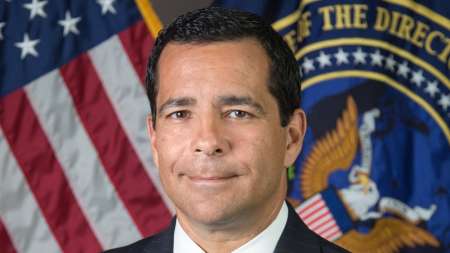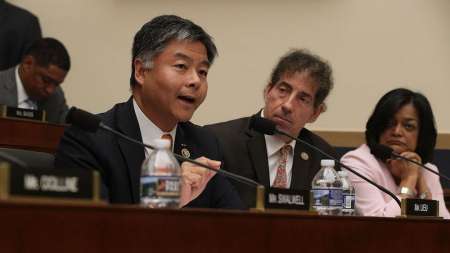The Federal Bureau of Investigation (FBI) released a new webpage focusing on combating foreign influence campaigns. […]
The Department of Homeland Security on Aug. 13-15 hosted “Tabletop the Vote 2018: DHS’ National Election Cyber Exercise,” which invited vendors and Federal, state and local election officials to participate in election security preparation. […]
Bill Evanina, director of the National Counterintelligence and Security Center (NCSC) in the Office of the Director of National Intelligence, said today that the billions of dollars the U.S. government and private sector spend each year on cybersecurity are not being properly and efficiently utilized unless government and industry wrap human resources departments tightly into security discussions. […]
Even as Apple went public yesterday with a new mobile device operating system intended to close security loopholes that law enforcement agencies were using to access locked devices, one digital forensics firm said it found a workaround to bypass the new security features for a cost of about forty bucks. […]
Howard Marshall, deputy assistant director of the cyber division at the Federal Bureau of Investigation (FBI), said Thursday at MeriTalk’s Akamai Government Forum that the bureau is taking a proactive approach to defending and apprehending when it comes to cyber criminals. […]
Welcome to MeriTalk News Briefs, where we bring you all the day’s action that didn’t quite make the headlines. No need to shout about ‘em, but we do feel that they merit talk. […]
House members on Thursday reintroduced a bipartisan bill that would prevent states from requiring technology companies to include encryption “backdoors” in their products that would allow governments to access data stored on those products. […]
Agencies need to leverage digital recruiting initiatives and enhanced data techniques to better attract talented and diverse personnel, according to human relations professionals at several Federal agencies speaking at a FedInsider webinar held May 31. […]
The world over, folks ask the same two questions every day–what’s for dinner, and what’s the weather forecast? In the government IT space, every day we’re all asking about the cloud forecast. A recent report from P&S Market Research provides new insights on the global government’s cloud appetites. […]
The Department of Homeland Security’s (DHS) rare public alert last week about a large-scale Russian cyber campaign targeting U.S. infrastructure raised a piercing alarm about vulnerabilities in the nation’s power grid, and underscored what officials have meant when talking about the need for a whole-of-government and whole-of-nation approach to cyber defense. Protecting against a major attack, managing the damage once one hits, and responding to an attack are beyond the reach of any one agency or sector, they argue; the job requires concerted efforts from the public and private sectors. […]
It appears that the improved reliability and security of cloud computing is attracting more law enforcement agencies. The U.S. Customs and Border Protection (CBP) is the latest agency looking to migrate applications to a commercial cloud provider. […]
About five years ago, many law enforcement officials wondered if the cloud was safe enough to hold their data. Now the FBI, the nation’s top law enforcement agency, is considering a move to a large-scale, commercial software cloud provider. […]
The FBI fell far short of its own goals for fighting cybercrime in 2017, according to a Department of Justice (DOJ) audit. The FBI reported disrupting or dismantling 262 high-level criminal operations targeting global U.S. interests, only about half of its goal of 500, and roughly one-tenth of the 2,492 cybercrime operations it broke up in 2014. […]
The FBI currently has a backlog of nearly 7,000 crime-connected phones that its experts are unable to crack. And it’s going to get much worse, law enforcement leaders say. […]
The FBI needs access to encrypted files in order to protect the nation against cyber crime, according to Deputy Attorney General Rod Rosenstein. “Encryption is essential,” Rosenstein said “It is a foundational element of data security and authentication. It is central to the growth and flourishing of the digital economy. We in law enforcement have no desire to undermine encryption. But ‘warrant-proof’ encryption poses a serious problem.” […]
The Department of Justice announced on July 20 that it was recently able to take down dark website AlphaBay and its administrator. The action was in conjunction with Europol as well as law enforcement authorities in Thailand, the Netherlands, Lithuania, Canada, the United Kingdom, and France. […]
While President Donald Trump talks about creating a Cybersecurity Unit with Russia, government officials told the Washington Post that Russian government hackers were behind recent cyber intrusions into the business systems of U.S. nuclear power and other energy companies. […]
A phishing attack in January 2016 gave hackers illegal access to the Department of Interior network through remote logins on at least eight Gmail accounts, according to a report released May 24 by the Office of the Investigator General at DOI. […]
The FBI is more focused on retaining and training existing employees than hiring young people who might be more technologically adept, according to Howard Marshall, deputy assistant director of FBI’s Cyber Division. […]
Malicious insiders often don’t get caught because of stovepiped security monitoring systems, according to Lou Bladel, a former FBI agent who led the Edward Snowden and David Petraeus investigations in his time there. […]
The organizational changes flowing around in James Comey’s head aren’t new or revolutionary. But they are for the FBI, and they could fundamentally alter what it means to be an FBI agent. […]
The FBI is building a facial recognition database that could potentially contain the face of every American, but it barely clears the accurate return rate requirements. […]
FBI Director James Comey confirmed in a House Select Committee on Intelligence hearing on Monday that his agency has been conducting an investigation since late July 2016 into Russia’s 2016 election hacking and whether members of the Trump campaign coordinated with that interference. […]
The Department of Justice today released an indictment of four men involved in the 2016 hack of Yahoo email accounts, two of whom were acting in their capacity as Russian FSB officers. […]
The FBI announced the release of its Most Wanted application, which provides citizens with pictures and information about investigations into wanted fugitives, missing persons, crime suspects, deceased victims, and others. […]
Federal Joint Analysis Reports should include stronger language on indicators of compromise, according to Cris Thomas, a network security strategist at Tenable. DHS and the FBI released a JAR on Dec. 29 that discusses the tools Russian intelligence officers used to compromise the networks and infrastructure associated with the recent U.S. presidential election. […]
The DHS-FBI Joint Analysis Report sheds light on the tools Russian intelligence officers used to compromise the networks and infrastructure associated with the recent U.S. presidential election. […]
The House last week passed the fiscal 2017 Intelligence Authorization Act, which includes a wide variety of cyber-related programs and policies. Although HR 6393 must still make its way through the Senate, the bill authorizes spending on everything from recruiting and retaining technology workers throughout the intelligence community and the FBI, to fighting online propaganda by ISIS and Russia, and cybersecurity threats facing U.S. seaports. […]
The U.S. government is charging Harold T. Martin III under the Espionage Act after concluding that the National Security Agency contractor took home 50 terabytes of classified data. […]
In order to educate law enforcement officials on how to deal with digital evidence and cyber-based crimes, the FBI has created the Cyber Investigator Certification Program, a project that, in partnership with Carnegie Mellon University, aims to address the concerns of the International Association of Chiefs of Police (IACP) over a lack of affordable cyber training options for officers. […]




























